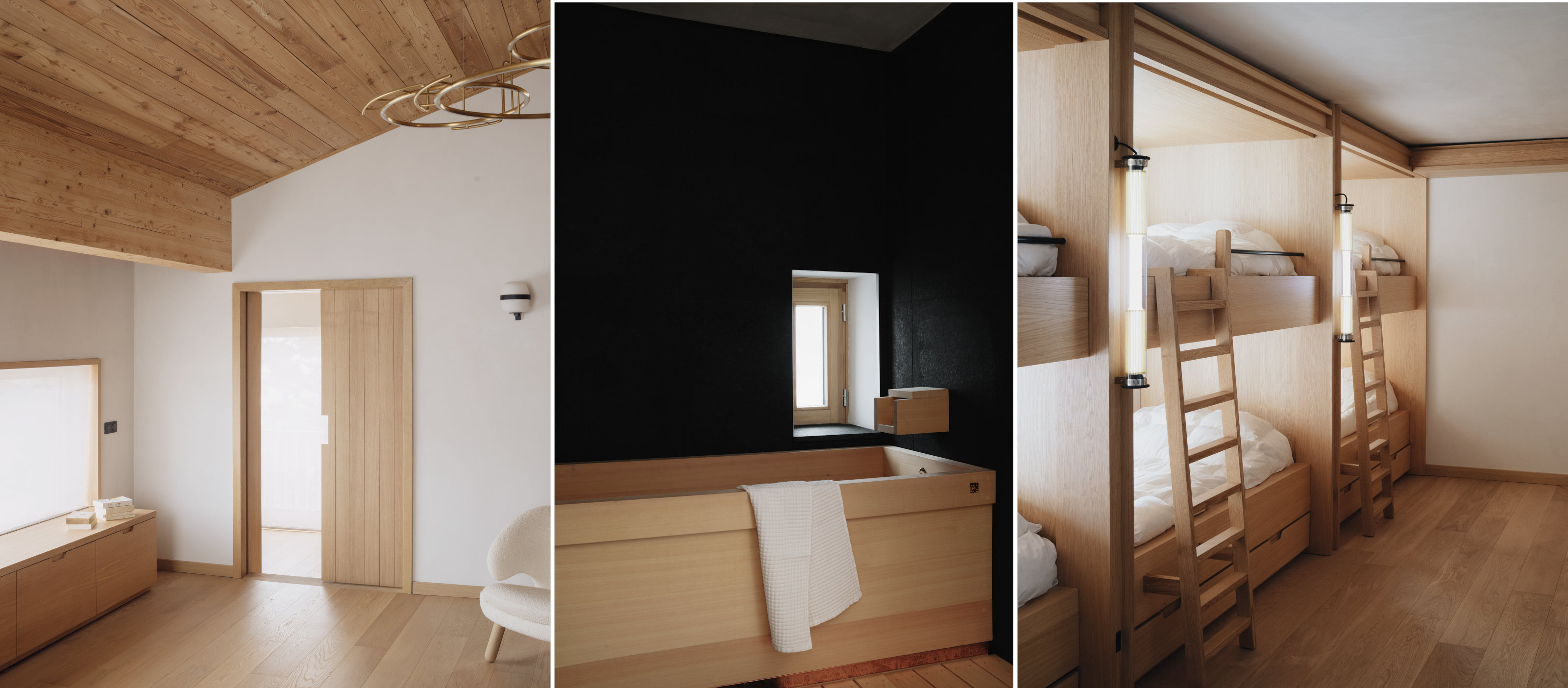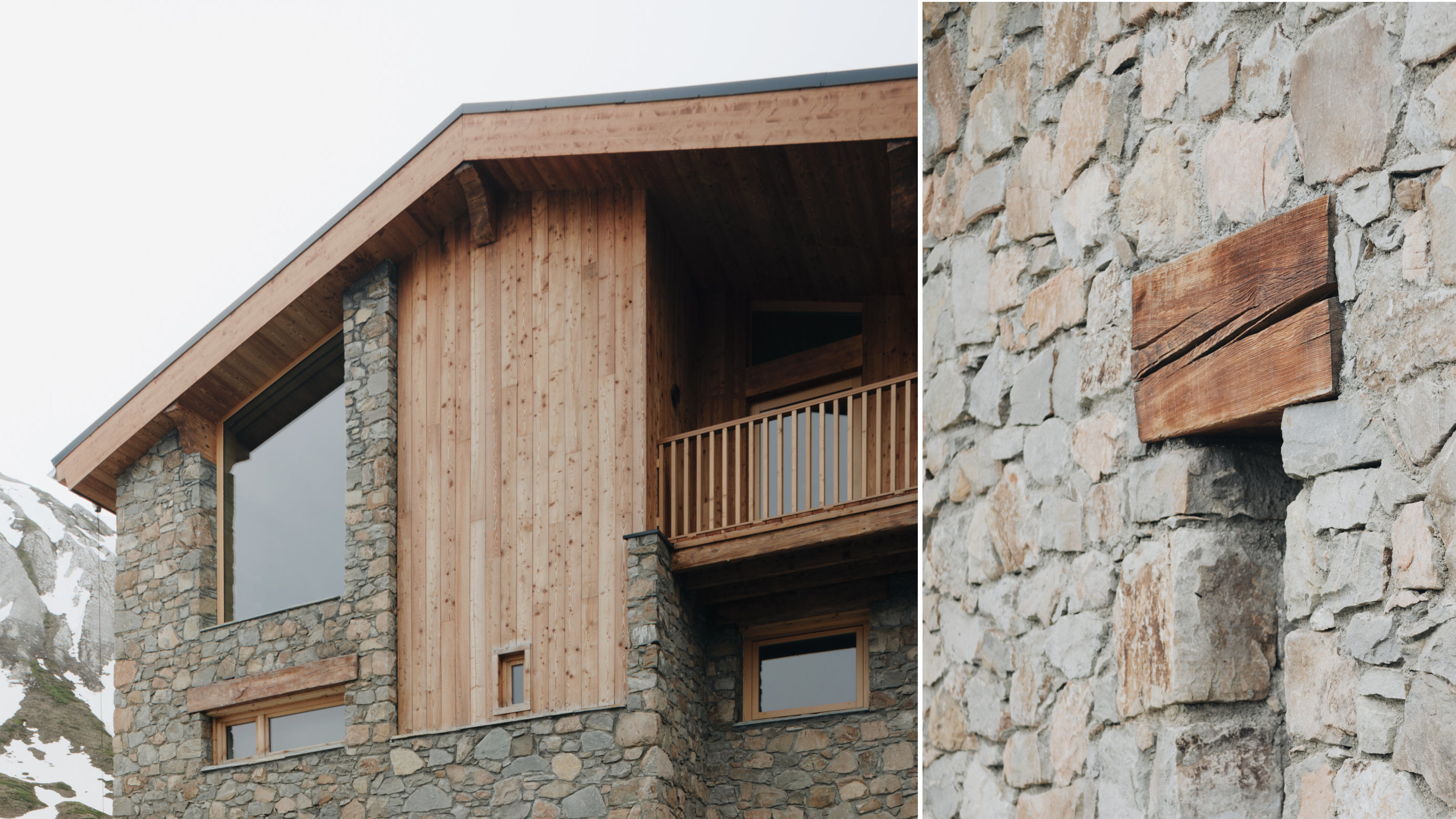
High up in the French Alps, in a resort fabled for its altitude, lay an all-concrete chalet, a rather unhappy attempt at modernism within the traditional residential architecture of the region. The clients wanted to update the structure and give it back some genuine character, and they approached Studio Razavi, the firm founded in 2008 by Alireza Razavi with offices in Paris, New York and London.
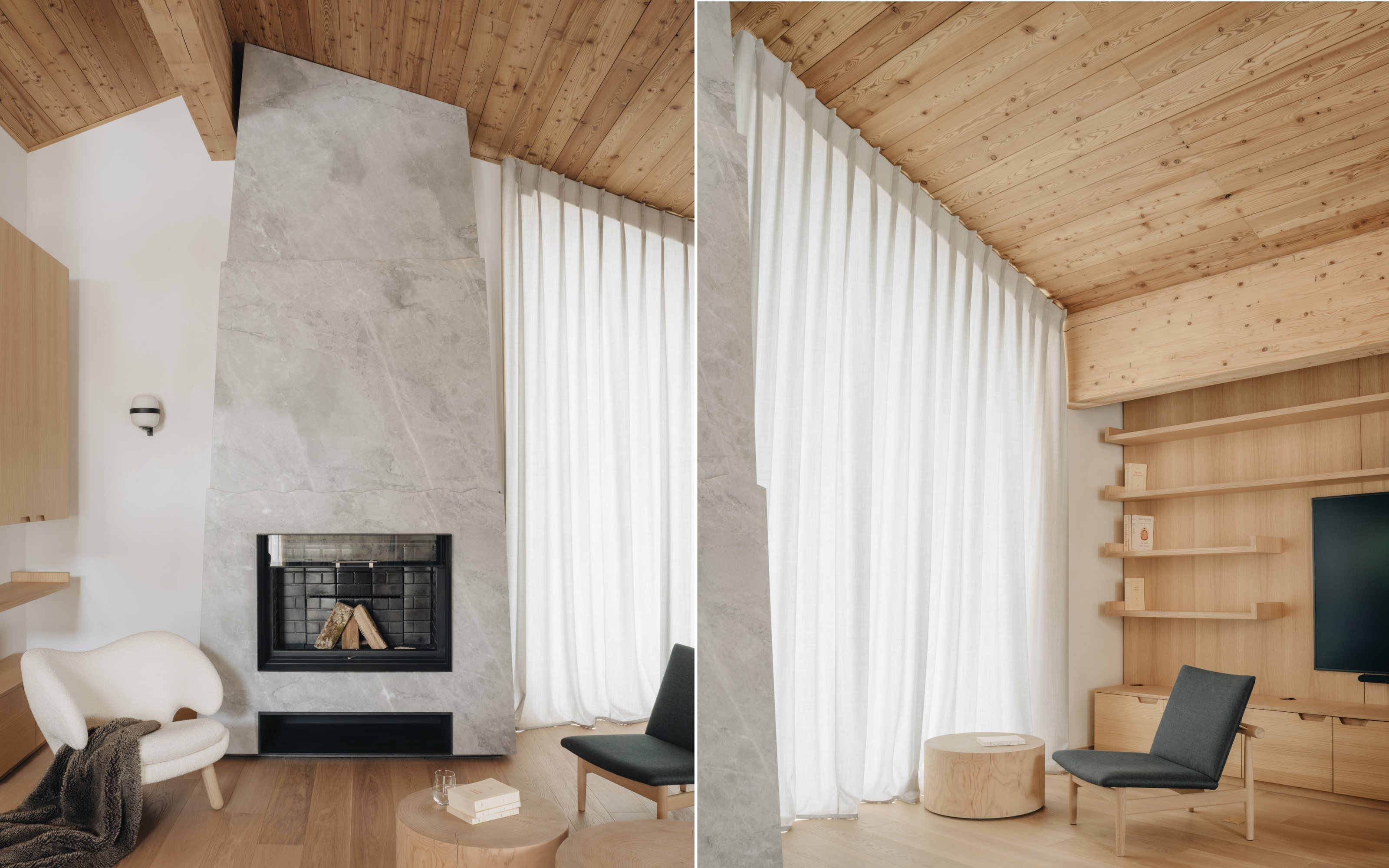
Studio Razavi's modern chalet transformation
As the architects note, despite the relative youth of the structure, all façade changes had to be subject to landmarks approval in a region where every building is gone over with a fine toothcomb to protect its Alpine character. Not only that, but the interior posed another challenge as load-bearing concrete walls had to be modified and altered to give the chalet a more open and amenable layout.
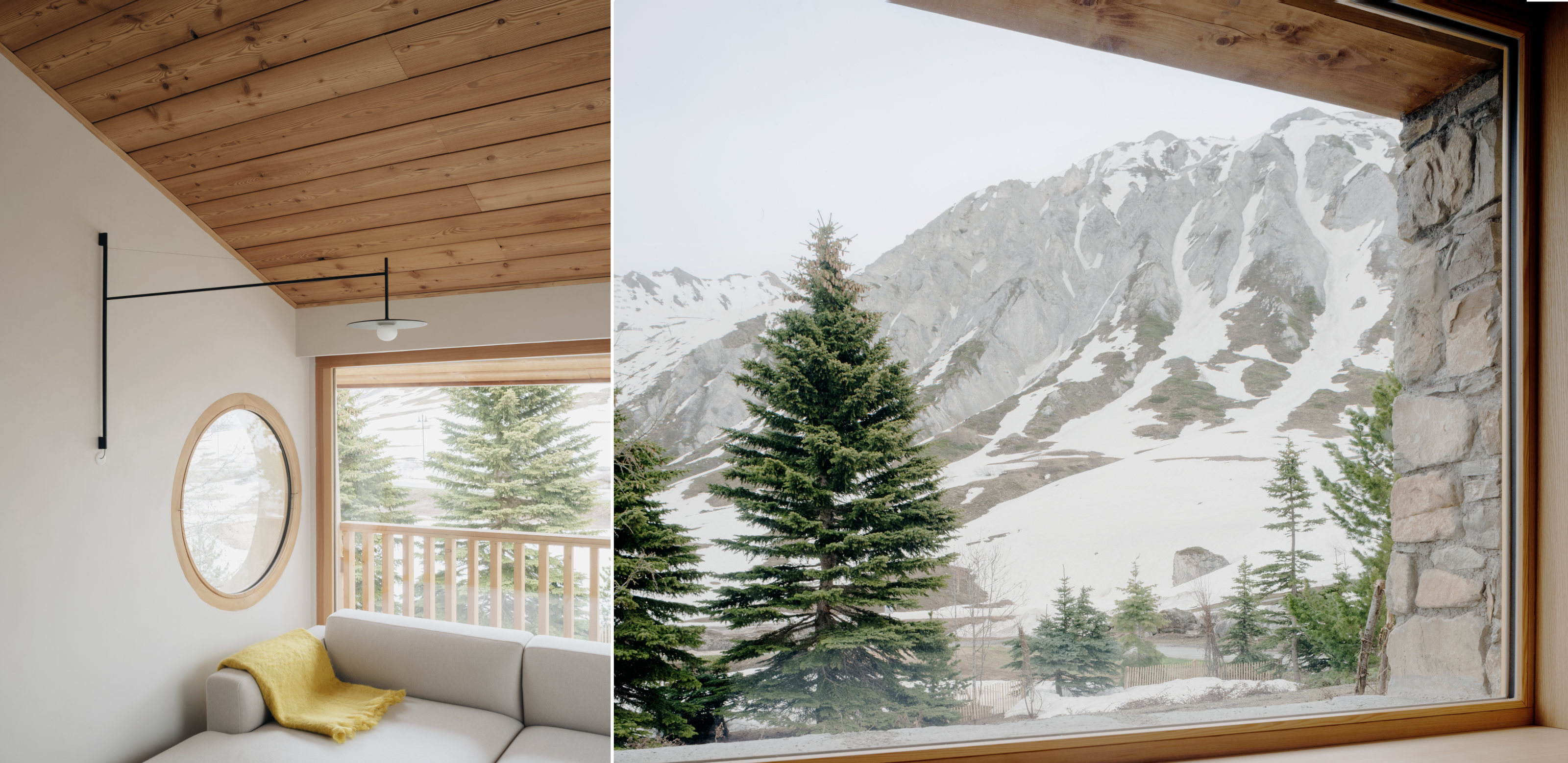
After four decades in the mountain air, the chalet had acquired a lived-in look that tied it nicely to its surroundings. ‘From conceptual design onwards, we were mindful not to lose the chalet’s existing façade patina,’ the architects say. ‘Therefore the changes to the interior layout were carefully weighted in light of their exterior impact.’ This weaving of old and new is especially apparent in the surviving timber components like lintels, which currently contrast strongly with the new cladding and roof structure. ‘In a few years, hopefully it will all become a coherent ensemble,’ the architects note.
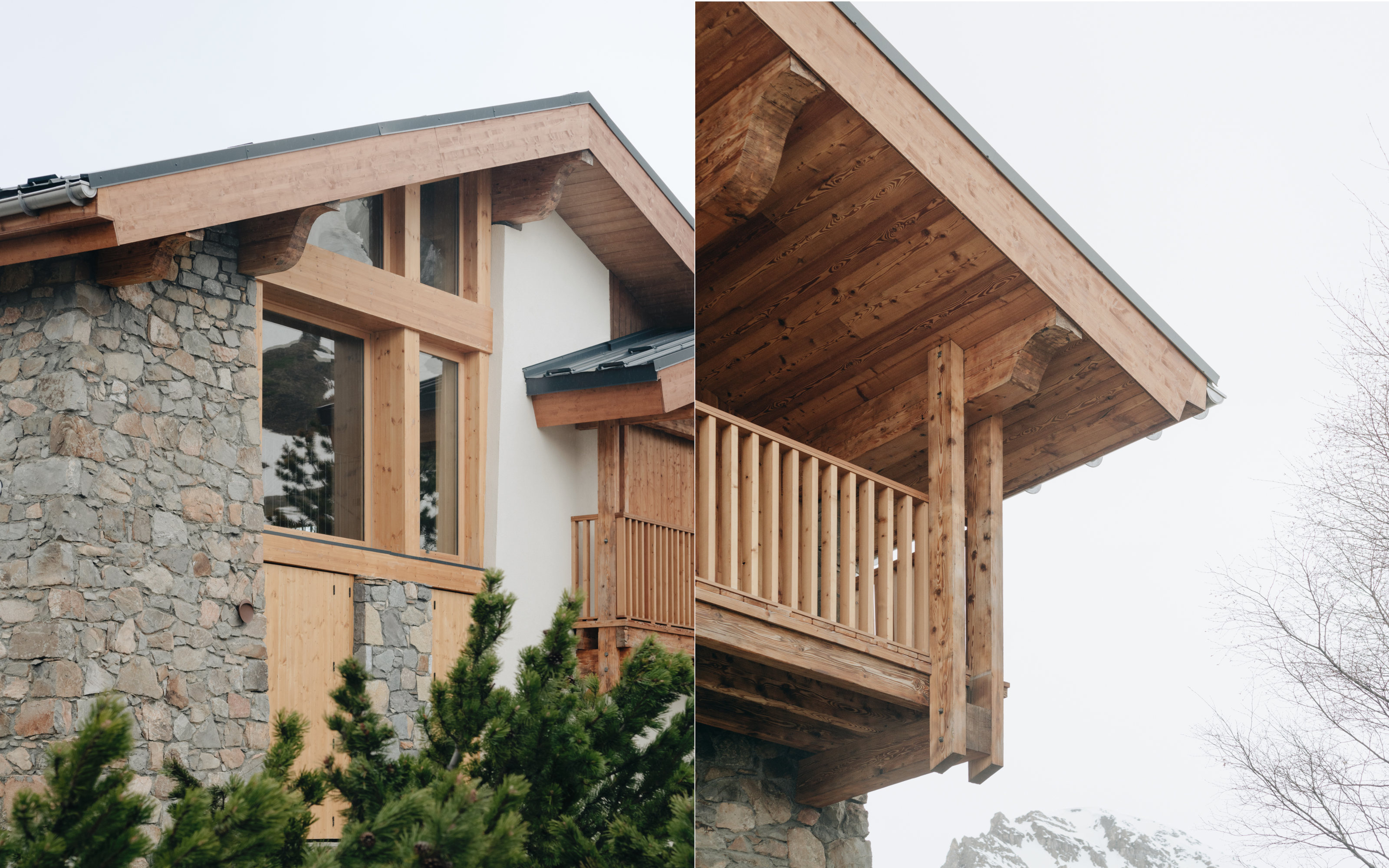
Inside, the emphasis is on simple, enduring craftsmanship with a nod to the pared-back, hard-wearing style that has defined chalet architecture for centuries. The architects write about creating a ‘hierarchy of openings to the outside’, ensuring that each room has its own unique relationship with the landscape, with a combination of large picture windows, smaller portholes and diaphanous curtains to preserve privacy while also conveying some of the rich mountain light.
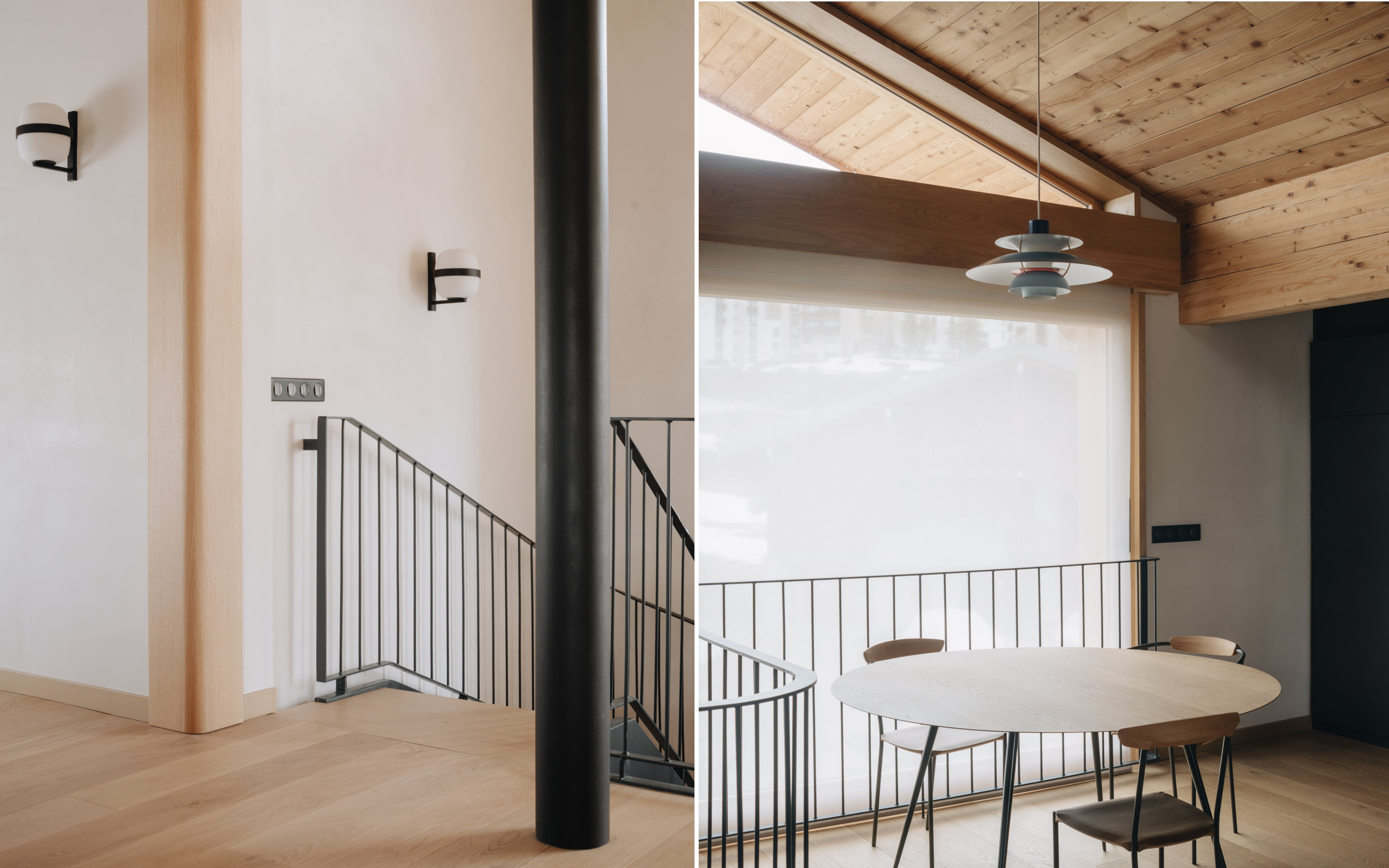
The generously scaled project covers 214 sq m, with living areas tucked into the eaves to benefit from ceilings that are raised up into the roof. A modern interpretation of the traditional stone chimney takes pride of place, with subtle layers of stone mimicking the mountain ridges that surround the house. There’s a bunk room for the children, while key features like the staircase have been rendered with utter restraint, featuring a slender metal balustrade that’s deliberately at odds with the solidity of the stone façade and overhanging roof.
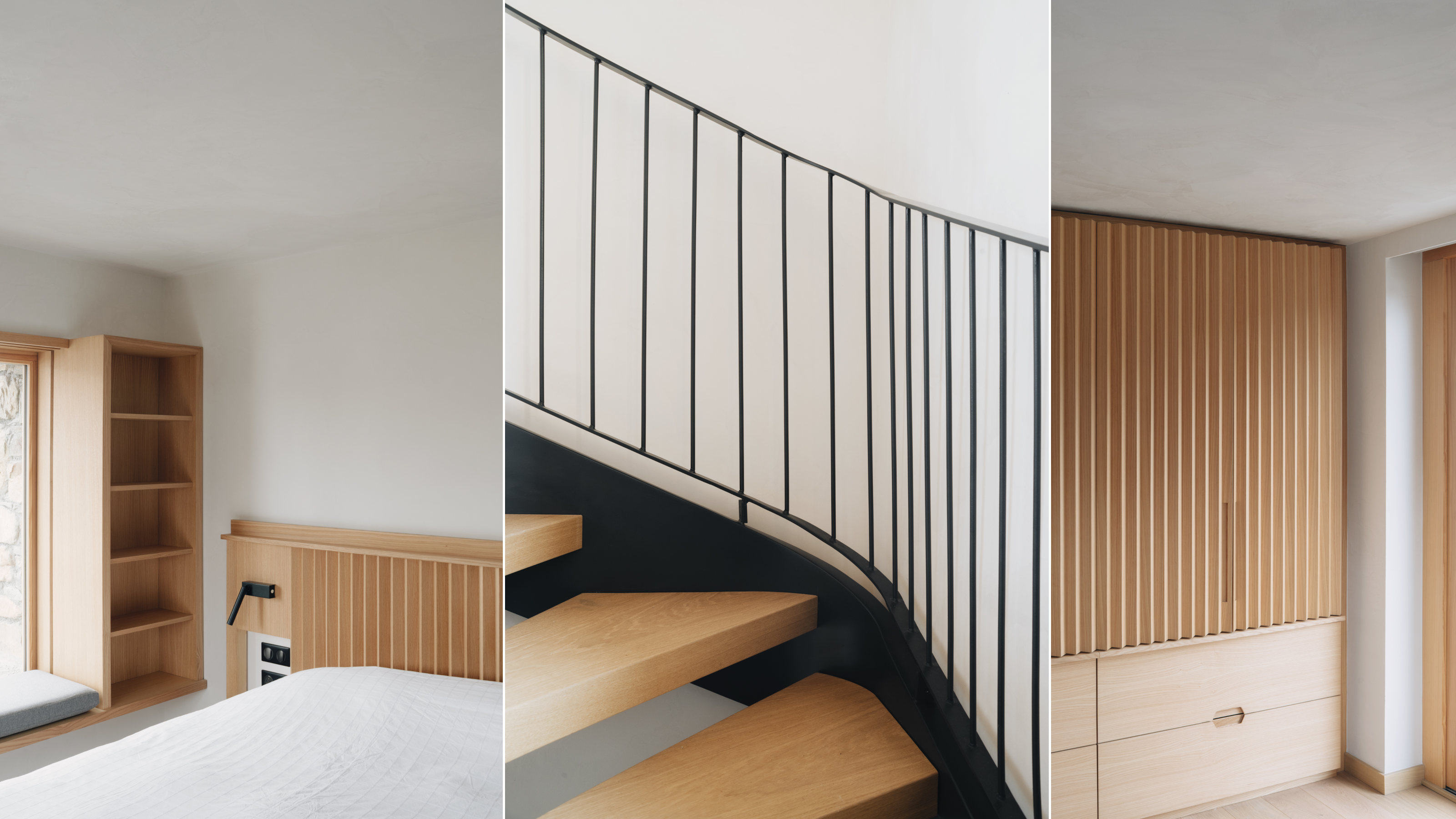
Razavi studied at Columbia University in New York and Paris’s Ecole Nationale des Arts Décoratifs before working with Peter Eisenman, Shigeru Ban Architects, and others. His office defines its approach as a synthesis of ‘technique and architectural sensitivity… free of stylistic limitations, open to context’, and recent projects have covered everything from private houses to transportation and mixed-use projects.
